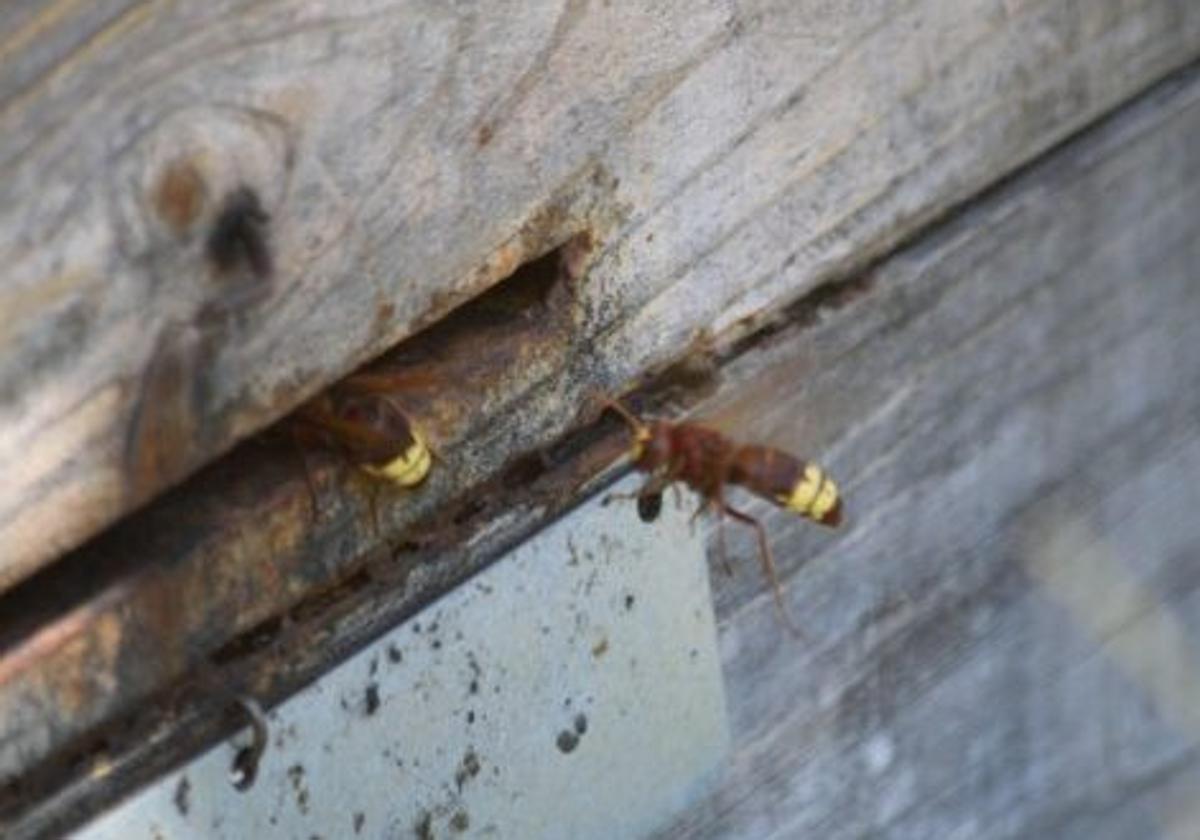Agricultural association warns of speed of spread of oriental hornet and threat to honey production
Malaga province is particularly suffering, "especially on the coast, as well as in the Genal and Guadalhorce valleys", which is causing a "significant" problem for local beekeepers and to the wider Andalucía region, COAG has claimed
Europa Press
Malaga
Monday, 12 August 2024, 13:01
The Andalusian agricultural organisation COAG-A has warned of the effects of the oriental hornet, an invasive species that can cause "significant losses to the sector". Specifically, it attacks bee hives, "killing the bees and reducing honey production", as well as fruit, which it renders "commercially valueless". Since it was first seen in the province of Cadiz, there has been an "increase in sightings in the south of the Spanish mainland", the organisation said in a statement. This has led to a spread "at great speed through the provinces of Malaga and Seville" and the encounter of other specimens "in Huelva, Cordoba and Jaén".
The organisation held a meeting earlier this year at which it was informed of "the rate of expansion of this hornet and the seriousness of the situation" and has requested another meeting to explain that they are "very late" and that "solutions to this environmental problem" must be provided.
In this regard, the head of the beekeeping sector of COAG Andalucía, Antonio Vázquez, explained that, after the meeting, the organisation asked the Malaga province environmental delegation for "authorisations so that beekeepers could place traps to capture the Vespa orientalis queens" and thus prevent the spread of the hornet. Vázquez said that "these authorisations were never given, contrary to what has happened in other Andalusian provinces". In this way, Malaga is suffering "an increase in the number of the hornets, especially on the coast, as well as in the Genal and Guadalhorce valleys", which is causing a "significant" problem for local beekeepers and to Andalucía, he said.
As for the summer months, the head of the organisation explained that they are precisely "the most problematic for the fight against the hornet", as they coincide with the time when it has to "feed its larvae and needs protein", which it obtains from the bees, so "it destroys the hives and the rest of the insects".
For this reason, COAG-A has called on the Junta de Andalucía to "become aware of what is happening and decree urgent measures to stop the spread, which is a serious problem for the agricultural sector, society and the Andalusian ecosystem".
Nests near urban centres
The location of their nests - close to urban centres and at ground level - makes this wasp "more problematic for society as a whole". The dangers include touching the nests, which "can produce multiple attacks with very painful stings that cause allergic reactions".
As for the problem, it is "particularly serious in Malaga", where the growth of this species is "directly proportional to the lack of measures taken by the province's territorial delegation for the environment".
